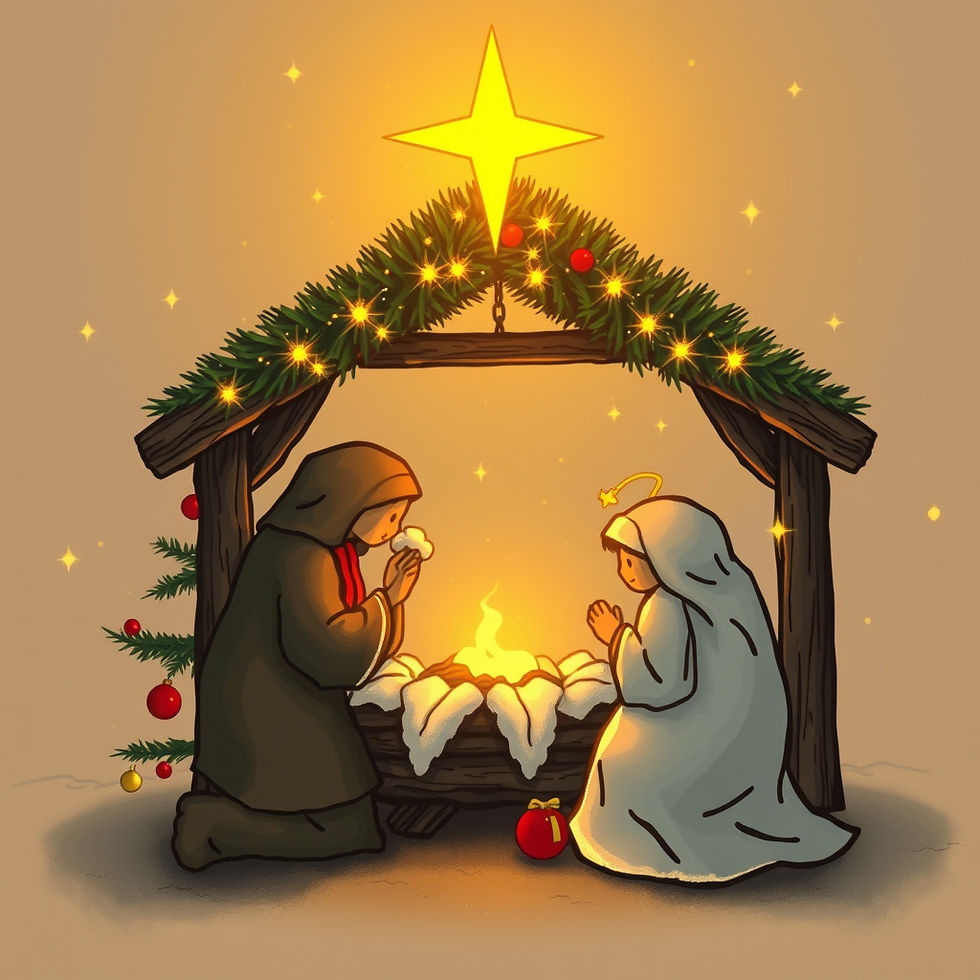Celebrating Ends and Beginnings
- Eldon Peterson
- Aug 9, 2018
- 3 min read
Pulitzer Prize winning journalist, Anna Quindlen, wrote, “Life is not so much about beginnings and endings as it is about going on and on and on. It is about muddling through the middle.” Possibly a better thought is that, “There’ll be two dates on your tombstone and all your friends will read them but all that is going to matter is that little dash between them.”
As I considered these, I realized that through our faith in Christ we can flip these around to see how an end is actually a new beginning. This is true in weddings, funerals and baptisms where we find that an end is just the beginning of a new journey.
In marriage, the man and woman are called to heed Jesus’ words, “So they are no longer two, but one flesh. Therefore, what God has joined together, let no one separate.” (Matthew 19:6) The foundation for this comes from Genesis 2:24, "Therefore a man shall leave his father and his mother and hold fast to his wife, and they shall become one flesh."
Before a marriage can begin, the previous bonds must change. The parents of the bride and groom need to recognize that their authority must end in order for the couple to begin their new life. The bond between husband and wife needs to be stronger than the bond between parent and child or the new relationship will struggle. Nothing (parents, career, friends) is to divide or separate this relationship.
Likewise, in funerals we see how the end is only a beginning. In death, it is common for us to remember the dash between the dates. But if our hope ends in death, we can be left feeling that we are holding an empty cup. Why? Because memories of the past do little to give us hope for the future. However, when our hope is in Christ, we can not only remember the person’s past but their present hope as well.
What is the hope found in death? That there is more to the sum of one’s life than a dash or muddling through the middle. Paul warns, “And if our hope in Christ is only for this life, we are more to be pitied than anyone in the world.” (1 Corinthians 15:19) In other words, if Christ did not rise, if the gospel is only a feel-good message, then we are liars preaching empty promise. BUT, as Paul goes onto reason, since Christ rose from the dead, the hope is real and everything changes.
Therefore, when someone dies who has placed their hope in the gospel, believing that Jesus died for their sins and was raised to new life giving them the resurrection hope, then we can truly celebrate their gain of being with Christ while still mourning our loss. Can you understand what this means? Just as a wedding is not simply the remembrance of the end of our singleness neither is a funeral simply remembering a life that it is gone. In death we celebrate the new life that is gained by the believer.
Similarly, in baptism we also celebrate the promise of a new life by remembering the death of the old self. The evangelical Christian sees baptism as an “outward act of an inward reality”. When we are immersed in baptism we testify of how we’ve been cleansed by Christ’s shed blood and testify of our eternal hope as we are raised up.
In Romans 6 Paul uses baptism to illustrate our hope of a new beginning, “Or don’t you know that all of us who were baptized into Christ Jesus were baptized into his death? We were therefore buried with him through baptism into death in order that, just as Christ was raised from the dead through the glory of the Father, we too may live a new life.” (3-4) More than anything else, it is our longing for new life, to be made whole and pure, that is realized in Christ. In order to find life, to live for Christ, we must first die to self.
Weddings, funerals and baptism all celebrate a new beginning gained through an end. The end of singleness in marriage, the end of life at a funeral and the end of living for self in baptism. Unless we do these while having our eyes fixed on our future hope they are empty rituals at best. Bottom-line, life is more than a dash in the middle; it is to be a celebration of our eternal journey with God in Christ.




Comments